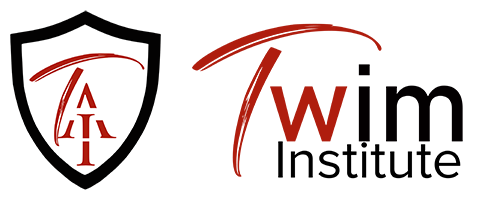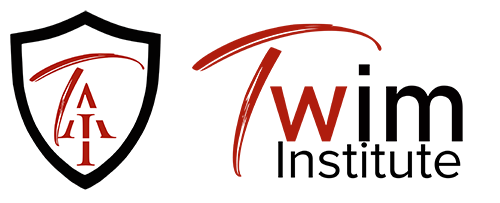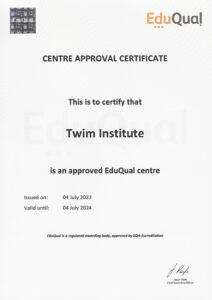In this age of globalization, getting some form of foreign education sometime in the course of your educational journey is great for several reasons, some of which have been outlined here. However, in this post, we will discuss ways of getting great foreign education without breaking the bank. Here are 5 ways to do so:
Study at UoPeople
University of the People, or UoPeople, is an online university registered and accredited in the United States. It offers courses “tuition-free”, charging fees only for assessments. It is therefore very cheap by American standards.
Here are some pros and cons of studying at UoPeople (bearing in mind that this article is directed to a Nigerian audience):
Advantages
- It’s cheap by American standards (not completely free). A typical degree will cost you a total of slightly less than $5000.
- You may be able to get a scholarship.
- It’s accredited by DEAC (referred to as “national accreditation” in the United States) and seems to be on track to get regional accreditation.
- It is online, thus allowing you to work while schooling.
- They have some great collaborations and agreements with other schools, some of which are very well known.
- UoPeople is very thorough and rigorous. The faculty is made up of distinguished individuals who are very qualified.
- The school also ensures acceptable academic standards by actively discouraging plagiarism or cheating.
Disadvantages
- The “small” fees (charged for examination assessments) can be very high by Nigerian standards
- There are no lectures in the real sense. There is a study guide implemented through Moodle (an e-learning platform) but then, you have to read up on your own and participate in discussions and peer-grade assignments. You shouldn’t underestimate this as there is usually a lot to read and if you are not cut out for it, it can be very discouraging. You should also note that the kinds of contributions expected from students in American education can be very different from Nigerian education.
- Sometimes, peer grading can lead to very unfair assessments
- National accreditation is not really recognized in the US. Most people prefer “regional accreditation” which is what all the major universities and colleges have. As a result, you may experience issues transferring credits from UoPeople or getting your UoPeople certificate accepted for subsequent programs. Please note that this often plays out differently in different people’s contexts so it might never be an issue for you.
In summary, UoPeople is a great choice but be sure you understand all about it.
2. Get a British Diploma at Twim Institute (and Top-Up to a Degree)
Twim Institute offers you the benefits of the British further education system by allowing you to study and sit for UK professional qualifications in areas such as Business Management, Information Technology, as well as Tourism and Hospitality Management. With diplomas which are issued at Level 4, Level 5, and Level 6 (UK undergraduate first, second and final years), you can easily top-up to a university degree in the UK or online if you so wish. This way, you would have gained a UK degree for a fraction of the cost. More information about this is available here.
3. Study in Europe
Europe offers a great assortment of top-ranking universities, many of which are also relatively affordable. As a matter of fact, outside of the United Kingdom, higher education can be obtained in Europe for just above the cost of private university schooling in Nigeria. Public universities are, in some cases, almost free in Germany (although you may have to learn German), cheap in Poland (starting from about 1200 Euros), and moderately priced in other countries like Estonia, Lithuania, Georgia, and others. You should note, though, that the cost of living in each of these countries is significantly higher than the cost of living in Nigeria. As a result, the total expenses for getting European education will still be much higher than the cost of doing the same in a Nigerian private school.
4. Get a Scholarship
If you are a student with outstanding, or at least above-average, academic results, you may be able to get a scholarship. Several countries put out calls for scholarships at different times of the year and you should do your very best to prepare for them and apply when the windows of opportunity are open.
Many students assume that scholarships are meant only for the brightest students but this is not always the case. There are many other factors that come into play including the strength of your application, your motivation statement, references, goals, and sometimes how you explain your financial situation. As a result, I would definitely recommend that you apply for a scholarship if you need one.
Notable examples of popular scholarship schemes are:
The Commonwealth Scholarships for residents of Commonwealth nations (such as Nigeria)
The Chevening Scholarships for study in the United Kingdom
Australia Scholarships
New Zealand Scholarships
Government of Ireland Scholarships
Get a Student Loan
If you would like to study in the United States or the United Kingdom, you may wish to take a loan to help cover your costs if you are unable to get a suitable scholarship. This may not be very difficult if you are a citizen or permanent resident. If you are not, you may need to find someone who is and who is willing to co-sign for you.
Please note that we strongly recommend exploring the other options on this list if possible, instead of getting into huge debt to fund your education.





